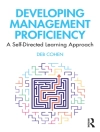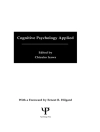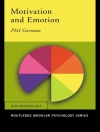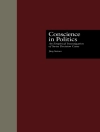This classic text, with a reputuation for accessibility and readability, has been revised and updated to make learning design concepts even easier. Roger E. Kirk shows how three simple experimental designs can be combined to form a variety of complex designs. He provides diagrams illustrating how subjects are assigned to treatments and treatment combinations. New terms are emphasized in boldface type, there are summaries of the advantages and disadvantages of each design, and real-life examples show how the designs are used.
قائمة المحتويات
Chapter 1. Research Strategies and the Control of Nuisance Variables
Chapter 2. Experimental Designs: an Overview
Chapter 3. Fundamental Assumptions in Analysis of Variance
Chapter 4. Completely Randomized Design
Chapter 5. Multiple Comparison Tests
Chapter 6. Trend Analysis
Chapter 7. General Linear Model Approach to ANOVA
Chapter 8. Randomized Block Designs
Chapter 9. Completely Randomized Factorial Design with Two Treatments
Chapter 10. Completely Randomized Factorial Design with Three or More Treatments and Randomized Block Factorial Design
Chapter 11. Hierarchical Designs
Chapter 12. Split-Plot Factorial Design: Design with Group-Treatment Confounding
Chapter 13. Analysis of Covariance
Chapter 14. Latin Square and Related Designs
Chapter 15. Confounded Factorial Designs: Designs with Group-Interaction Confounding
Chapter 16. Fractional Factorial Designs: Designs with Treatment-Interaction Confounding
عن المؤلف
Roger E. Kirk received his Ph.D. in experimental psychology from the Ohio State University and did post doctoral study in mathematical psychology at the University of Michigan. He was a Distinguished Professor of Psychology and Statistics at Baylor University. He founded, and for 25 years, directed Baylor’s Behavioral Statistics Ph.D. program and the Institute of Statistics, now the Department of Statistical Science. He published extensively in the areas of statistics, psychoacoustics, and human engineering, and authored five statistics books. Experimental Design: Procedures for the Behavioral Sciences, his first book, was identified by the Institute for Scientific Information as one of the most frequently cited books in its field. In recognition of his teaching effectiveness, he was named the Outstanding Tenured Teacher in the College of Arts and Sciences and designated a Master Teacher, Baylor University’s highest teaching honor. He was the 2005 recipient of the Jacob Cohen Award for Distinguished Contributions to Teaching and Mentoring from the Division of Evaluation, Measurement, and Statistics of the American Psychological Association.












